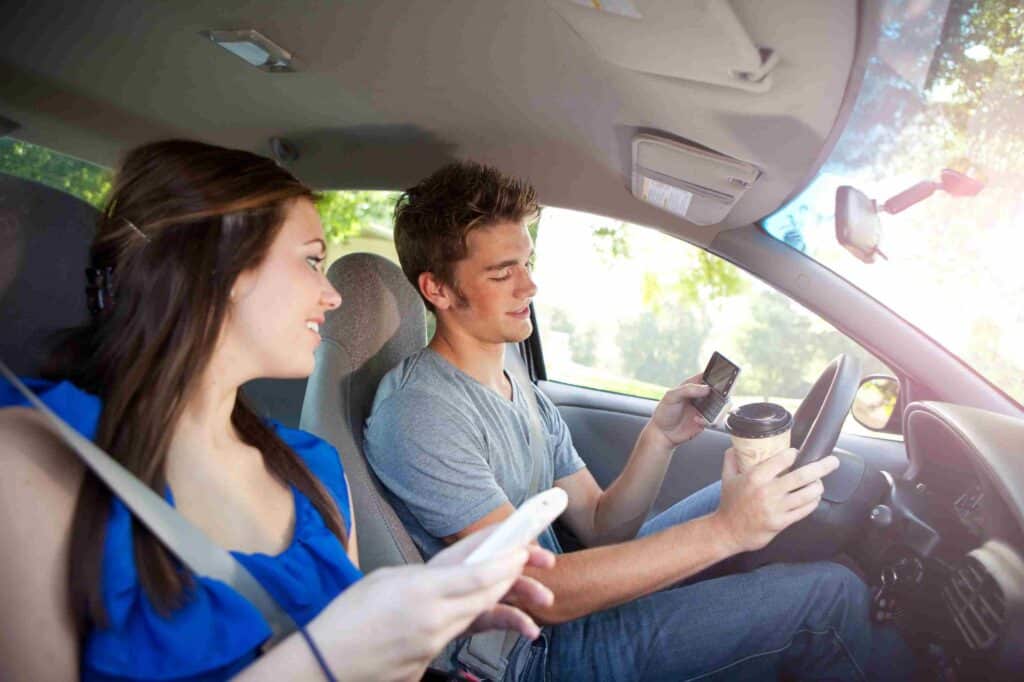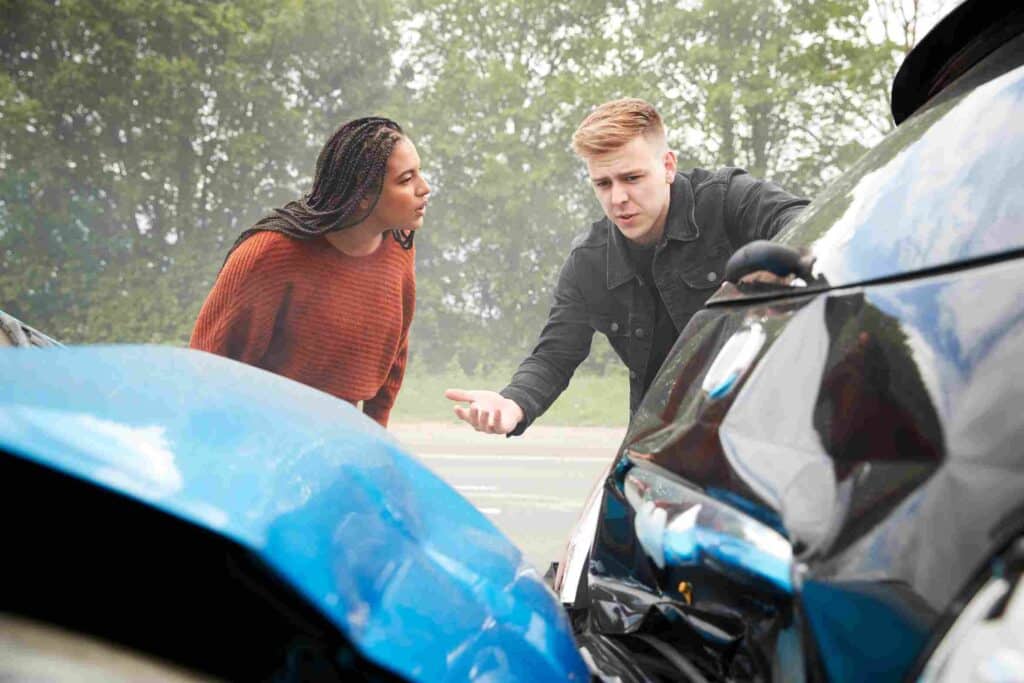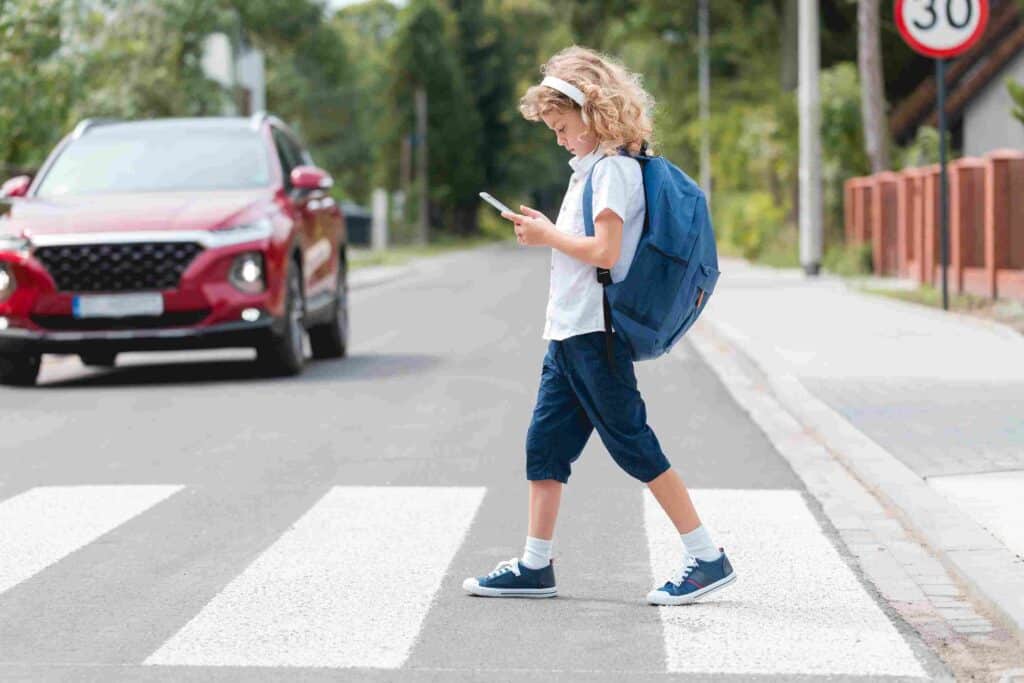Between 2016 and 2020, distracted driving was a factor in 163 serious injuries and 27 fatalities involving teen drivers. These sobering statistics clearly show how prevalent this problem is in Minnesota and why it requires attention.
At Nelson Personal Injury, LLC, we understand that one of the most significant steps in safeguarding our Minnesota communities starts with educating our youngest drivers about the perils of distracted driving. Parents must take an active role in encouraging their teens to avoid distractions while behind the wheel.
Here, we offer a guide to help you have this conversation. While it may not be easy, it will be worthwhile when your teen pulls back into the driveway at the end of the day.
Setting the Scene for the Talk
Before diving into the details, creating a conducive environment for this conversation is essential to having a productive conversation. Choose a calm, relaxed setting, free of distractions, where you can have your teen’s full attention. You want to ensure you convey the seriousness of distractions and how easily and quickly an accident can occur. You can go through with them the possible ramifications of distracted driving and what could happen.
Understanding the Various Forms of Distraction
Several things can cause distracted driving. Some of the most common causes of distracted teen drivers include:
Smartphone Usage
The number one cause of distracted driving is smartphone usage. For teens, smartphones are a constant companion; however, they should never be used while driving. Texting, browsing social media, or changing music tracks can be significant distractions. Teens must understand the importance of keeping smartphones out of reach while driving to maintain focus on the road.
Peer Influences
When driving with friends, it’s easy for teens to get distracted. Loud music, conversations, and peer pressure can lead them to take their eyes off the road. It is vital to discuss the importance of staying focused and resisting peer influences that encourage risky behaviors like speeding or not wearing a seatbelt.
In-Car Entertainment Systems
Modern vehicles come equipped with in-car entertainment systems that can be a source of distraction. Teens may be tempted to fiddle with the radio, GPS, or other controls while driving. Encouraging them to set everything before starting the journey can prevent unnecessary distractions later on.
Eating and Drinking
Grabbing a snack or a drink while driving seems harmless, but it can easily divert a teen’s attention from the road. Encourage them to eat before they leave or to pull over if necessary to ensure they remain focused while driving.
Personal Grooming
In the hustle and bustle of teen life, some might be tempted to use their drive time to catch up on personal grooming, such as applying makeup or fixing their hair. Highlight the importance of dedicating time for personal grooming at home to avoid accidents caused by such distractions.
The Legal Repercussions
If your teen driver allows distractions to take their focus and attention, serious accidents can occur. Even if accidents do not happen, they may experience other consequences. Share the potential consequences with your teen so they know how serious these incidents can be.
License Suspension
For teen drivers caught driving while distracted, one of the most immediate repercussions could be suspending their driving license. This suspension not only represents a loss of a vital form of independence but also can be a mark on their early driving record, potentially affecting their ability to secure car insurance in the future.
Financial Penalties
Distracted driving can lead to hefty fines, often escalating with repeat offenses. Teens need to understand that the financial penalties are designed to deter drivers from engaging in dangerous behaviors on the road. Making them aware of the significant costs of distracted driving can be a deterrent.
Criminal Charges
In serious cases, teens might face criminal charges if an accident occurs due to distracted driving. These charges can range from misdemeanors to felonies, depending on the severity of the incident. Criminal records can impact a teen’s future, affecting education and job prospects.
Insurance Premiums
Following a distracted driving incident, insurance companies may increase premiums substantially. For a young person just starting, this increase in cost can be a significant burden, adding financial stress and complications to their lives.
The legal repercussions of distracted driving are severe and far-reaching. Teens must be made aware of these potential consequences to underscore the gravity of the responsibility of being a driver. It is not just about personal safety but also about the legal and financial repercussions that can follow distracted driving incidents.
Hands-on the Wheel, Eyes on the Road
Reiterate the golden rule of driving – always keep your hands on the wheel and your eyes on the road. Discuss the importance of being alert and ready to react to any unforeseen circumstances on the road.
Encouraging Safe Driving Habits
You are the best teacher for your teen. They will mimic what they see you do behind the wheel. Make sure you are a good example.
- Lead by Example: As a parent, you are your teen’s first role model. Demonstrate good driving habits consistently to instill the same in them.
- Setting Boundaries: Help your teen set boundaries, like limiting the number of friends in the car or banning phone use while driving, to foster a safer driving environment.
- Emergency Protocol: Teach your teen the correct protocol to follow in case of an accident. It should include checking for injuries, calling 911, and reporting the incident to the police.
Encouraging Questions and Concerns
Encourage your teen to ask questions and express their concerns freely. Let them know that they can always reach out to you for guidance.
End your conversation by encouraging your teen to commit to safe driving. You might even draft a “safety pact” that outlines the ground rules of driving and the expectations you both agree upon.
At Nelson Personal Injury, LLC, we are committed to helping families navigate the aftermath of distracted driving accidents. However, we believe that prevention is always better than cure. By having this open, honest conversation with your teen, you are building a safer driving environment for everyone on Minnesota roads. Let us work hand in hand to curb distracted driving and safeguard future generations.




